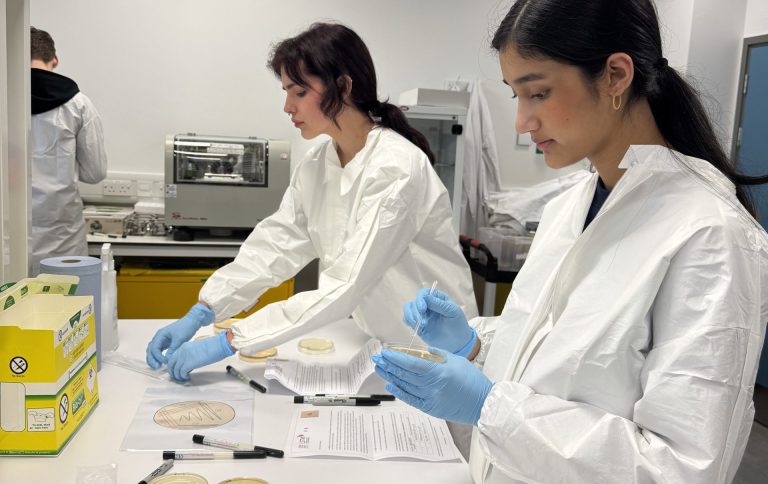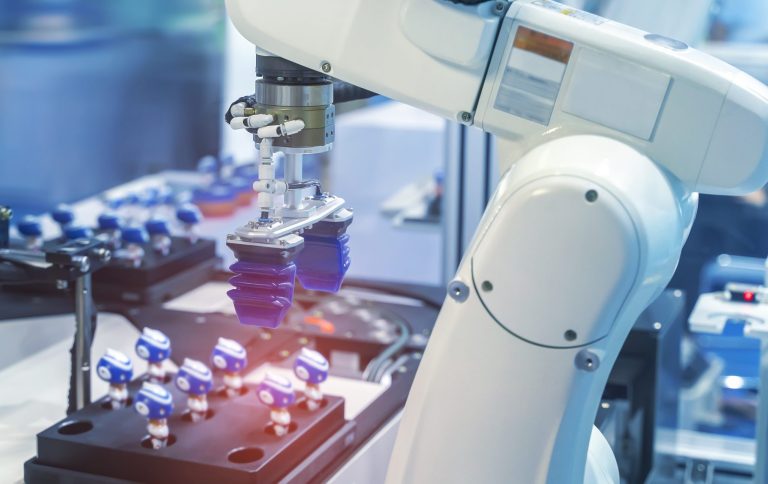- Find our latest Case Studies
- Our Platforms
Leveraging global learnings to combat Antimicrobial Resistance (AMR)

Earlier this year, The Lancet published the most comprehensive assessment of bacterial AMR to date.
Author: Dr Becky Jones-Phillips, Senior Business Development Manager at iiCON
This landmark study assessed the impact of AMR across 204 countries and territories and looked at the burden posed by 23 bacterial pathogens and 88 pathogen–drug combinations.
Although the threat of AMR has long been signalled, the resulting data from this major analysis are striking. In 2019 more than 1.2 million people, and potentially millions more, died as a direct result of antibiotic-resistant bacterial infections.
The study confirms AMR as a leading cause of death worldwide that is killing about 3,500 people every day with a burden likely to be higher than that of HIV or malaria.
AMR is a global problem and one that requires a holistic, collaborative, and coordinated approach pooling knowledge and best practice to drive innovative interventions and create new solutions.
Industry and academic collaboration is critical in this global war against a constantly evolving enemy. A comprehensive understanding of how AMR spreads within communities is the first, and arguably most crucial, step in unlocking this complex and multifaceted health challenge.
In order to optimally position health interventions, it’s vital that industry and policy makers work collaboratively with global research programmes to leverage learnings and ensure appropriate health interventions and product usage in key settings.
As part of its commitment to supporting the discovery, development, and deployment of break-through products and treatments for infectious diseases, including resistant infections, iiCON: Infection Innovation Consortium is providing industry with advanced research insights around how AMR spreads within communities, the key drivers of resistance, and optimal interventions.
This enables effective positioning of a broad range of health interventions including clinical, hygiene, and diagnostic products – guiding and equipping industry partners with the understanding needed to shape and position interventions to ensure optimum benefit to patients and communities.
At the macro-scale, the consortium is able to work with partners to analyse the movement of pathogens in different environments. This allows experimental tracking and modelling of environmental shedding of bacteria and viruses, and monitoring movement through water, air or waste water systems, alongside person-to-person transmission, in a diverse range of socio-economic settings.
This insight to position product usage to deliver the most effective beneficial impact. While optimising product placement is important for many health settings, ensuring appropriate intervention is essential for AMR, where inappropriate antibiotic usage within community settings and across global farming and food chains, has significantly exacerbated the issue globally.
The advanced mapping and modelling capability that industry partners are able to benefit from through iiCON is enhanced by learnings drawn from global research programmes where iiCON partners, such as the Liverpool School of Tropical Medicine (LSTM), are playing a key role in assessing the spread and impact of AMR within communities.
An example of this is the DRUM (Drivers of Resistance in Uganda and Malawi) consortium, iiCON lead partner, LSTM, is working with partner organisations across Uganda, Malawi, and the UK to explore the spread of resistance within communities across in Uganda and Malawi.
DRUM takes a One Health approach to exploring how water, sanitation and hygiene (WASH) practice and infrastructure interact with antimicrobial usage and human health to facilitate the transmission of AMR-bacteria in communities in Uganda & Malawi, through several research workstreams. DRUM will utilise this learning to shape interventions to interrupt AMR transmission.
Central to the programme is understanding both antibiotic usage and the interaction between human health, WASH and AMR enteric bacteria at a community level to develop a transmission model and develop future interventions. Agent-based modelling is being used to better understand the emergence and transmission of AMR bacteria. This modelling uses the outputs of DRUM’s workstreams to understand how the multiple factors interact and influence the development of antibiotic resistance.
The programme is also exploring how target bacteria evolve in response to antibiotics through a combination of molecular and culture-based microbiology. This will allow researchers to determine if the antibiotics commonly used in Uganda and Malawi promote the emergence and persistence of fit, multi-drug resistant strains and if there is a case for the introduction of different antibiotics or a change in the prescribing practice to avoid this.
The programme is also starting to investigate the economics of antimicrobial resistance; AMR impacts on people’s health but little is known about how this translates into the cost of providing healthcare in Africa, or the out of pocket costs for patients. Linking the economic and health consequences of AMR is essential for policymakers to better understand the value in investing in strategies to mitigate further resistance developing.
Understanding how policy around AMR is developed and shaped is another key area the programme is looking at. The DRUM consortium is working to understand the policy process for addressing AMR in Malawi and Uganda at national and district level. One output of this research has been to identify key governmental structures where AMR policy is developed and monitored. This research will help to inform policymakers in other countries to develop and implement antibiotic resistance policy more effectively.
Approaches being developed by DRUM are being adapted by partners running the TRACS-Liverpool programme to track the spread of AMR between care settings and the community within Liverpool in the North West of England.
The Tracking AMR Across Care Settings in Liverpool (TRACS-Liverpool) project brings together iiCON partners LSTM, Unilever, NHS Liverpool University Hospital Foundation Trust (LUHFT), alongside the University of Lancaster. The partners are delivering a collaborative study to monitor the key transmission routes of resistant bacteria between care homes, hospitals and the community in Liverpool.
The TRACS-Liverpool project aims to investigate transmission of specific AMR resistant bacteria in hospitals and care homes by recruiting residents and patients and collecting stool samples over a period of 12 months. By testing the stool and using genome sequencing and modelling techniques to track bacteria the study aims to identify where transmission of resistant bacteria is happening.
This testing will be accompanied by a health systems analysis looking at areas including data management and staff training to identify best practice as well as factors that could be contributing to onward transmission. The findings from the study will be shared with hospital flow teams and participating care homes to co-design and pilot interventions to block transmission and, ultimately, reduce the number of drug-resistant infections.
Supporting industry partners to drive innovation and appropriately position health interventions to maximise benefits for global communities is at the heart of iiCON’s model. This approach speaks directly to key recommendations within The Lancet report, which highlights a number of failures in the global approach to AMR including serious data gaps and an extremely low rate of innovation.
With the significant global challenges we face in the battle to combat AMR, it is essential that research efforts are accelerated and platforms that enable collaborative, inter-disciplinary knowledge sharing are supported. Close collaboration between academia, industry and the public sector to understand the root causes and drivers of AMR is essential to drive pioneering innovation, address knowledge gaps, and inform policy and practices – ultimately supporting a cohesive, global One Health approach that will move the dial on this critical global issue.


